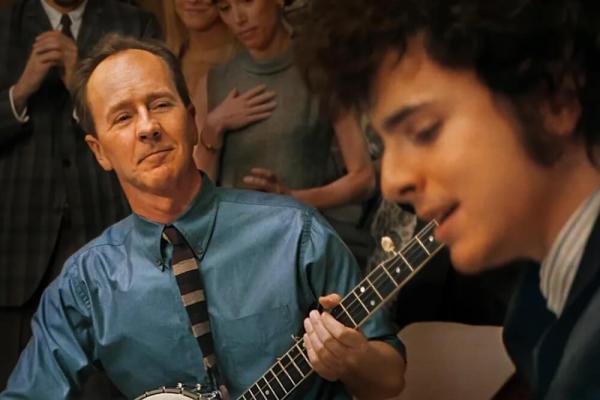Feb 5, 2025
James Mangold’s A Complete Unknown is a striking film. Centered on a young Bob Dylan (Timothée Chalamet), the biopic chronicles the folk music community that bounced in and around 1960s New York City, offering stellar musical and acting performances in the process. But its wisest scene takes place off stage in an intimate conversation between Dylan and Pete Seeger (Edward Norton).
Read the Full Article

Already a subscriber? Login
